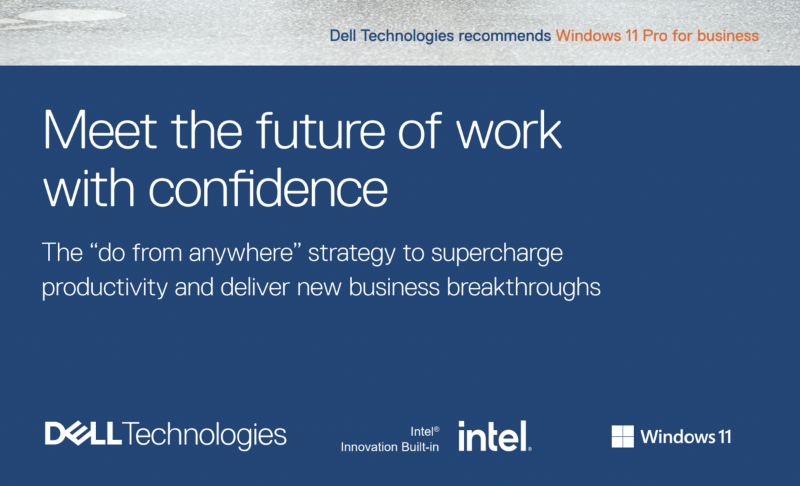Meet the future of work with confidence
Published on 17 May 2023

In the business world, there have been a lot of big changes in the past two years, which has made business leaders look for the right word to describe it. At first, "disrupted" may have been the most common word to describe the situation, but now many companies are seeing it as a chance rather than a loss. In 2021, Vanson Bourne did a study that showed that 87% of technology leaders think that all companies should adopt a "remote-first" philosophy because they see the promise in this new model.
The new chance to do business
The advantages of using a mixed style of work are becoming more and more clear. More than half of businesses say that their output has gone up, and they say that this is because virtual and mixed work situations give people more freedom and flexibility. Also, employee happiness and well-being have improved, which has made the workplace a better place. Organizations want to be able to shift easily to a "work from anywhere" model, and 96% of CIOs say they want to support this.
Effective mixed working has become a strategic edge in high competition. Organizations that make it easy for their workers to switch between different types of work without hurting productivity or the customer experience are likely to do well. By offering the framework and assistance for needed technology, these businesses do better than their competitors in speed and longevity.
Flexible working has helped companies draw and keep a broad scope of acapacities, in addition to being good for business. Professionals looking for jobs are becoming more interested in having a good mix between work and life, working from anywhere, and having more freedom. Organizations that focus on a digital-first model and are open to mixed work can use this to build a skilled and diverse workforce.
But it's important to be aware of the problems of setting up and keeping up a long-term mixed working future. Adapting to technological changes, ensuring communication and teamwork work well, and handling security issues are some of the biggest challenges companies must face and solve. Even though the benefits are clear, facing these obstacles successfully takes careful planning, investments in infrastructure, and a resolve to always get better.
Productivity went up a lot
As the future of work becomes clearer, the idea of increased efficiency is getting more and more attention. Organizations no longer believe what they thought they knew about how digital-first working would affect them. They are now at a crucial point where they can change their work. Organizations are paying more attention to building a setting that encourages resiliency and innovation because they know how important work experience is. Research shows that top companies can handle tough times better than less mature ones because their employees have a good experience with technology. This leads to much higher user happiness numbers. In addition, 44% of CIOs who participated in the Vanson Bourne study said that using a mixed model led to more innovation.
In short, the change toward virtual and mixed work has given businesses new ways to make money. Organizations can gain a competitive edge if they accept this change, put the employee experience first, and deal with the problems it brings. By using the power of increased efficiency, drawing a wide range of talent, and encouraging innovation, these companies are well-positioned to succeed in the changing world of work.
Download Dell Technologies's whitepaper to learn more about the future of work with confidence only on Whitepapers Online.
